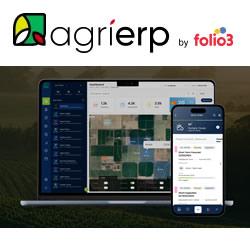Kroger and 80 Acres Farms to Reach More Customers
80 Acres Farms has been a supplier to Kroger since 2019, starting with a single store in downtown Cincinnati and growing to more than 300 stores across Ohio, Indiana and Kentucky in 2021. Following today's announcement, the company plans to serve about 1,000 Kroger stores across the Midwest and Southeast.
The Kroger Co. (NYSE: KR) and 80 Acres Farms, a leading global vertical farming company, are working together to bring fresh, clean produce to more households.
80 Acres Farms has been a supplier to Kroger since 2019, starting with a single store in downtown Cincinnati and growing to more than 300 stores across Ohio, Indiana and Kentucky in 2021. Following today's announcement, the company plans to serve about 1,000 Kroger stores across the Midwest and Southeast.
"At Kroger, we believe everyone deserves access to fresh, delicious food," said Dan De La Rosa, Kroger's group vice president of fresh merchandising. "80 Acres' unique approach and technology enables us to offer fresh, nutritious produce to our customers while advancing sustainable growing practices. Together, we'll expand the reach of these long-lasting and great-tasting 80 Acres Farms items year-round."
80 Acres Farms grows pesticide-free produce—including salad blends, herbs and tomatoes—entirely indoors using fewer natural resources. Currently, the company operates production farms in Ohio and Kentucky, as well as research facilities in Arkansas and The Netherlands. The company's newest farm in Florence, Kentucky, commenced operations in December 2022 and will supply approximately 40 million servings of produce annually. 80 Acres Farms is preparing to open another next-generation farm in Georgia, with more locations on the way.
Kroger is bringing 80 Acres Farms' fresh produce to new geographies, including Michigan, Tennessee and Georgia in early 2023 and continuing into the Mid-Atlantic and Delta regions in the fall. Soon, 80 Acres Farms will supply Kroger customers with products beyond the company's existing salad blends, including grab-and-go fresh meals.
"Retailers have long been attracted to indoor farming because of its potential to supply fresh, healthy and great-tasting produce in a more environmentally sustainable and resilient manner," said 80 Acres Farms co-founder and CEO Mike Zelkind. "Kroger recognizes the importance of vertical farming in our nation's future food supply chain, and the value we deliver by offering differentiated products that customers love."
About The Kroger Co.
At The Kroger Co. (NYSE: KR), we are Fresh for Everyone™ and dedicated to our Purpose: To Feed the Human Spirit®. We are, across our family of companies, nearly half a million associates who serve over 11 million customers daily through a seamless shopping experience under a variety of banner names. We are committed to creating #ZeroHungerZeroWaste communities by 2025. To learn more about us, visit our newsroom and investor relations site.
About 80 Acres Farms
80 Acres Farms, a vertical farming leader based in Hamilton, Ohio, operates indoor farms built with world-class technology and analytics by the company's tech-focused subsidiary, Infinite Acres. 80 Acres Farms provides consumers with a range of pesticide-free harvests that last longer at home, reducing food waste, and exceed the highest standards in food safety. Consumers can find the company's greens, herbs, fruits, and vegetables at retailers including Kroger, Whole Foods, The Fresh Market, Dorothy Lane Markets, Jungle Jim's Markets, and foodservice distributors including Sysco and US Foods.
Featured Product

agrierp - Your One-Stop Farm Management Software
AgriERP is an all-in-one, comprehensive farm management suite, built by the farmers for the farmers to maximize profits. Built on the powerful ERP of Microsoft Dynamics 365, AgriERP enables farming enterprises to manage every aspect of their farm from financial management, inventory management, supply chain & logistics management, crop management, operations management, resource management, to sales, contracting, & shipping - All in a centralized platform.
